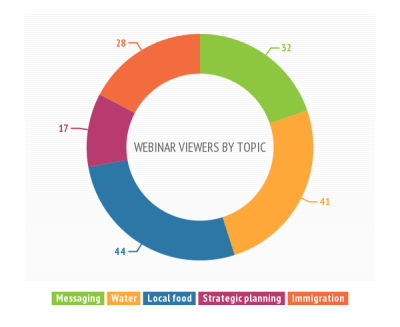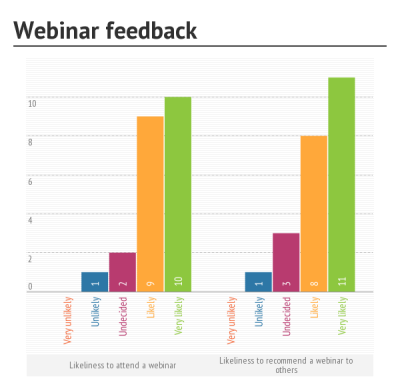Six months of Easy as PIE webinars have saved attendees and their organizations tens of thousands of dollars in salary and fuel costs, while also protecting the environment from several metric tons of harmful carbon dioxide emissions.
Between December and May, 169 people have participated in Easy as PIE webinars from 14 states and Washington, D.C. Attendees have saved more than $26,400 in gas receipts and commuting time, according to an internal PIE Center assessment.
O utreach and Training Coordinator Nicole Dodds created the Easy as PIE series to give people across the country access to the PIE Center and the chance to learn about important agricultural, natural resources and communications issues.
utreach and Training Coordinator Nicole Dodds created the Easy as PIE series to give people across the country access to the PIE Center and the chance to learn about important agricultural, natural resources and communications issues.
“I’m excited to be able to provide our stakeholders with new information and expert speakers on these important agricultural and natural resources issues,” she said. “In this economic climate with slashed travel budgets and increased workloads, convenient and cost-free professional development  opportunities like these are the best alternatives to in-person presentations.”
opportunities like these are the best alternatives to in-person presentations.”
Instead of traveling to participate in on-site professional development opportunities nationally, webinar attendees prevented the release of almost 15 metric tons of carbon
emissions into the atmosphere— _the equivalent of the electricity use of 2.2 homes for one year, according to the U.S. Environmental Protection Agency.
The PIE Center’s carbon emissions assessment uses an average of 20 miles per gallon to calculate the amount of gas used to transport attendees to their nearest land-grant university. The EPA says every gallon of gas burned produces 19.4 pounds of carbon dioxide.
The savings do not take into account those who view the recorded sessions, which are available online. Recorded webinars have been watched more than 700 times through May.
Easy as PIE webinars provide an opportunity to learn in an interactive online environment. Both experts and practitioners share their relevant research, experiences and recommendations to engage and educate participants on different agricultural, natural resources and communications issues and topics.
“Attending our webinar sessions from the convenience of their desks allows people to hear from engaging and experienced speakers and learn new information and skills, all without traveling anywhere,” Dodds said.

















